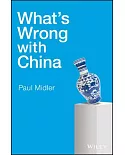Universal service is a focal point of telecommunications policy in the 1990s, not only in the United States, but in every other country that has begun to liberalize or deregulate its
telecommunications industry. The new policy dialogue revolves around four questions. First, how much do the universal service obligations of incumbent telephone companies cost? Second, how can
those costs be financed in a competitive environment? Third, what kind of technical and pricing arrangements should be made to interconnect incumbent telephone companies with the new, competing
networks? Finally, should the service bundle designated as "universal service" be redefined to take into account new technologies, and if so, how?
In the United States, debate over those issues reached a milestone when the U.S. Congress passed the Telecommunications Act of 1996. The new law is the first comprehensive revision of the
Communications Act of 1934 and culminates twenty years of legislative struggle over how to adapt federal law to the new realities of telecommunications. In effect, the new law codifies the
perceived wisdom about interconnection, competition, and universal service in telecommunications. Because one of the chief purposes of Milton Mueller’s analysis is to mount a historically
grounded challenge to that orthodoxy, the new law provides the perfect foil for a critique that links the historical and contemporary policy debates over universal service.





















